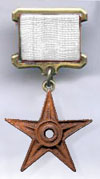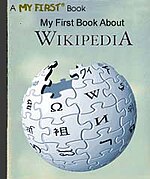User:Naveen Ramanathan

| |||||||||||||||||||||||||||||||||||||||||||||||||||||||||||||
 | |||||||||||||||||||||||||||||||||||||||||||||||||||||||||||||
Introduction[edit]Namaskaram and hello, I have a broad interest in languages, linguistics, religions, philosophy, geography and history, due to persistent questions about mystical experiences and personal identity. My main interest is in Hinduism, especially Shaivism, Advaita Vedanta and related traditions of "nondualism". I am also trying to understand other religions. Thanks to all Wikipedians who correct my mistakes!
|
Additional pages[edit]
Articles started by me[edit]
List
|
|---|
WikiProject[edit]
Infobox[edit]
- User:Naveen Ramanathan/Hindus
- User:Naveen Ramanathan/Naveen
- User:Naveen Ramanathan/Vedas
- User:Naveen Ramanathan/Rigveda
- User:Naveen Ramanathan/Yajurveda
- User:Naveen Ramanathan/Samaveda
- User:Naveen Ramanathan/Atharvaveda
- User:Naveen Ramanathan/Malaysian Malayali
- User:Naveen Ramanathan/Hinduism in Afghanistan
Tables[edit]
- User:Naveen Ramanathan/Demographics of major traditions within Hinduism
- User:Naveen Ramanathan/States of India by Malayalam speakers
- User:Naveen Ramanathan/Under construction
- User:Naveen Ramanathan/Under construction
- User:Naveen Ramanathan/Hinduism by country in the Middle East
Charts[edit]
- User:Naveen Ramanathan/Distribution of Hindu Malaysians by ethnic group (2010 census)
- User:Naveen Ramanathan/Distribution of Buddhist Malaysians by ethnic group (2010 census)
- User:Naveen Ramanathan/Hindu percentages in the Middle East
Template[edit]
To do[edit]
Drafts[edit]
Merger proposals[edit]
Add information[edit]
Various[edit]
Useful links[edit]
|
|
Categories:
- WikiProject Hinduism participants
- Wikipedians who contribute to Wikimedia Commons
- Indian Wikipedians
- Wikipedians interested in Hinduism
- Wikipedians interested in Malaysia
- WikiProject Malaysia participants
- Wikipedians interested in Asia
- WikiProject Asia participants
- Wikipedians interested in India
- WikiProject India participants
- Male Wikipedians
- Hindu Wikipedians
- User ml-N
- User ml-3




